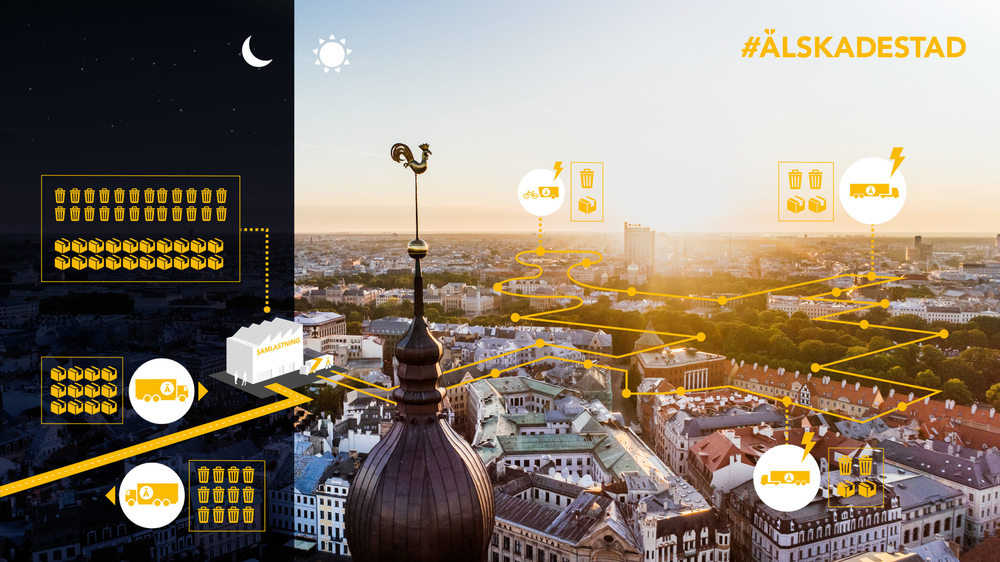InterCityLog2 - Minimize transport work with cross-border collaboration

Generate knowledge that enables to assess the energy efficiency potential in solutions identified as unutilized potential for collaborative and consolidated low emission transport solutions in cities.
Background
InterCityLog is a unique solution where goods and recycling can be co-distributed in cities. The solution included two heavy diesel vehicles for goods and recycling is replaced by a smaller on. The energy efficiency is improved by cooperation in several steps in the supply chain. InterCityLog is demonstrated and commercialized through "Älskade Stad" .
In the investigation an under-used potential were identified where material flows could be doubled with a significantly reduced vehicle movement inte the city, with a similar reduction of energy use.
In this extension project (InterCityLog 2) new material flows are included, as well as demonstration and analysis of new transport solutions. Transport company Bring have joined the consortia for this project which means new possibilities for optimization and research on the supply chain. A solution with an electrified bicycle and off peak night distribution of recycling is being demonstrated. New flows are being investigated to maximize the transport work and energy efficiency.
Aim
- Demonstration of new transport solutions which can improve energy efficiency potential with 50% compared to the former project InterCityLog.
- Provide key numbers for the new solutions (Wh/kg) collected recycling/distributed goods volume in each demonstration compared to current InterCityLog-production.
- A commercial assessment of Ragn-Sells and Bring in commercialization and dissemination of the new solutions in terms of cost analysis compared to today's production, for example by total cost in SEK per kg material.
- Demonstrate the goods impacts on energy efficiency in the route which have not been done in previous projects.

